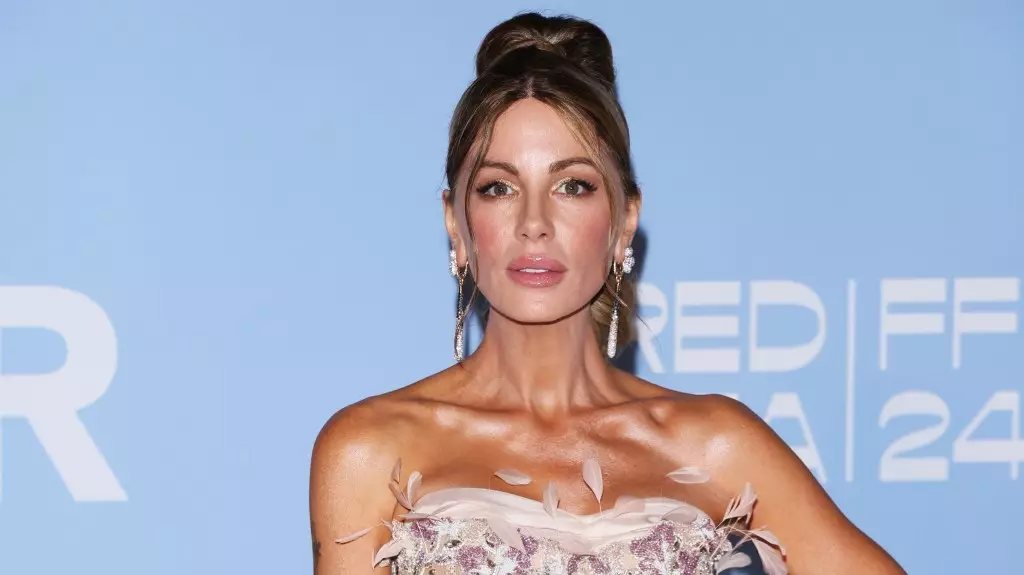In a powerful Instagram video that has captured public attention, actress Kate Beckinsale shared her personal experiences with systemic sexism and harassment in Hollywood. Beckinsale’s decision to step forward speaks volumes about the deep-rooted problems within the film industry—an industry that for too long has operated under a veil of silence regarding women’s rights and experiences on set. Prompted by the recent controversy surrounding Blake Lively and Justin Baldoni, Beckinsale’s testimony serves as both an indictment of the existing power structures and a clarion call for change.
The emotional weight of her stories provides a stark reminder of the perils women face in the creative workspace. Beckinsale began by sharing a traumatic experience from her teenage years when she was assaulted on set. Instead of finding support, she faced judgment and dismissal from her female colleagues—a shocking portrayal of the fraternal bonds often forged in toxic environments. This sets the tone for her broader critique of Hollywood, revealing how women trying to voice their traumas are met with hostility rather than solidarity.
Beckinsale’s recollections are a stark reminder that the industry frequently favors silence over speaking out. Whether discussing harsh criticisms from peers or the forced interactions with an indifferent public relations team just a day after personal tragedy, Beckinsale’s narrative emphasizes the emotional toll these experiences take on women. Amidst this chaotic backdrop, she poignantly captures the systemic sexism inherent in the industry’s culture.
The actress goes on to detail an alarming pattern of unsafe work conditions, particularly highlighting her experiences with male co-stars who seemed more interested in wielding power than ensuring a safe filming environment. The revelation that she experienced physical injuries during stunts, exacerbated by the dismissal of valid concerns, underscores the reckless disregard for women’s safety that persists even in high-profile productions. Beckinsale’s insistence that she was met with gaslighting and ostracism when raising these issues points to a toxic culture that punishes the complainant instead of addressing the problem.
These instances illuminate a broader systemic issue within Hollywood, where young and emerging actresses face a hostile environment characterized by a lack of support and an entrenched sense of fear. Beckinsale’s experiences shed light on the invisible barriers that women must navigate, emphasizing a culture that often prioritizes male comfort and image over female safety and wellbeing.
One of the most unsettling aspects of Beckinsale’s sharing is the realization that her experiences are not unique but rather part of a larger narrative that countless women in the industry have faced. She touches on the public’s general perception that improvements have occurred over the years—a sentiment she firmly rebuffs. The actress highlights that issues of harassment and sexism are not relics of the past but continue to thrive within the industry’s framework, revealing a dire need for a cultural shift.
Moreover, her comments about the inappropriate behavior resulting in harassment, particularly from trusted crew members, paint a dismal picture of an industry that fosters an environment where accountability is often evaded. The normalization of such conduct reveals the urgent need for structured reforms that can protect and empower women.
Ultimately, Beckinsale’s candidness serves as both a testament to her resilience and an urgent call for change. By publicly addressing the rampant sexism and misogyny prevalent in Hollywood, she compels both industry leaders and audiences to acknowledge these systemic failures and their enduring impact on women’s lives. Through her stories, she advocates for the voices of women to not just be heard, but validated and protected.
As grievances surface from various corners of the entertainment sphere, Beckinsale’s bold assertions implore us to dissect these troubling realities. It is vital that we collectively push for accountability within an industry built on voices and stories, ensuring that the narratives of women are not only acknowledged but revered. Only by confronting these uncomfortable truths can we hope to move toward a more equitable and respectful environment for all individuals in the creative sphere.


Leave a Reply